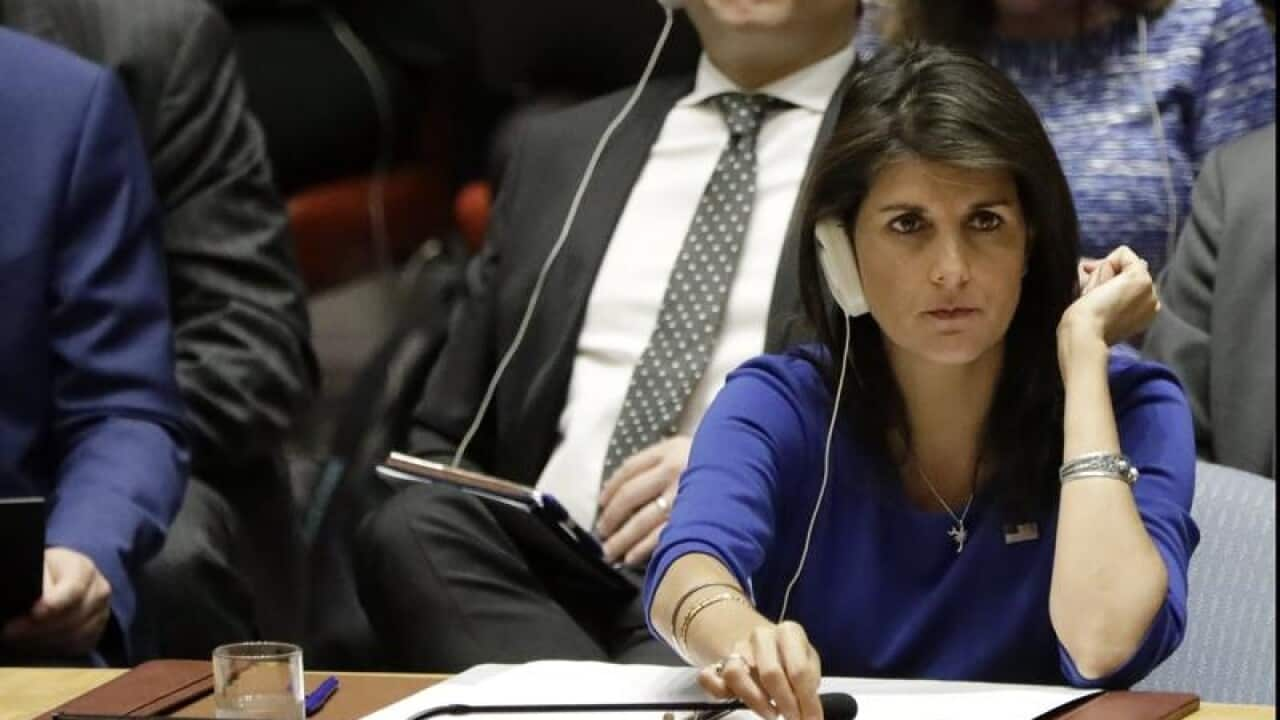The US has stressed continuing US troop involvement in Syria and outlined plans for new economic sanctions against Russia for enabling the government of Bashar Assad.
Stepping up the pressure on Syria's president, US Ambassador Nikki Haley indicated the sanctions to be announced on Monday would be aimed at sending a message to Russia, which she said has blocked six attempts by the UN Security Council to make it easier to investigate the use of chemical weapons.
"Everyone is going to feel it at this point," Haley said, warning of consequences for Assad's foreign allies.
"The international community will not allow chemical weapons to come back into our everyday life," she said. "The fact he was making this more normal and that Russia was covering this up, all that has got to stop."
Trump tweeted "Mission Accomplished" on Saturday after US, French and British warplanes and ships launched more than 100 missiles nearly unopposed by Syrian air defences.
While he declared success, the Pentagon said the pummelling of three chemical-related facilities left enough others intact to enable the Assad government to use banned weapons against civilians if it chooses.
Haley made clear the United States won't be pulling troops out of Syria right away, saying US involvement there "is not done."
She said the three US goals for accomplishing its mission are making sure chemical weapons are not used in a way that could harm US national interests, defeating the Islamic State group and having a good vantage point to watch what Iran is doing.
"We're not going to leave until we know we've accomplished those things," she said.
The night time assault on Syria was carefully limited to minimise civilian casualties and avoid direct conflict with Russia, but confusion arose over the extent to which Washington warned Moscow in advance.
The Pentagon said it gave no explicit warning. The US ambassador in Moscow, John Huntsman, said in a video, "Before we took action, the United States communicated with" Russia to "reduce the danger of any Russian or civilian casualties."
Russia has military forces, including air defences, in several areas of Syria to support Assad in his long war against anti-government rebels.
Russia and Iran called the use of force by the US and its French and British allies a "military crime" and "act of aggression." The UN Security Council rejected a Russian resolution calling for condemnation of the aggression by the three Western allies.
In his televised address from the White House on Friday, Trump said the US was prepared to keep up the economic, diplomatic and military pressure on Assad until he ends a pattern of killing his own people with internationally banned chemical weapons.
That did not mean military strikes would continue. In fact, General Joseph Dunford, chairman of the US Joint Chiefs of Staff, said no additional attacks were planned.

